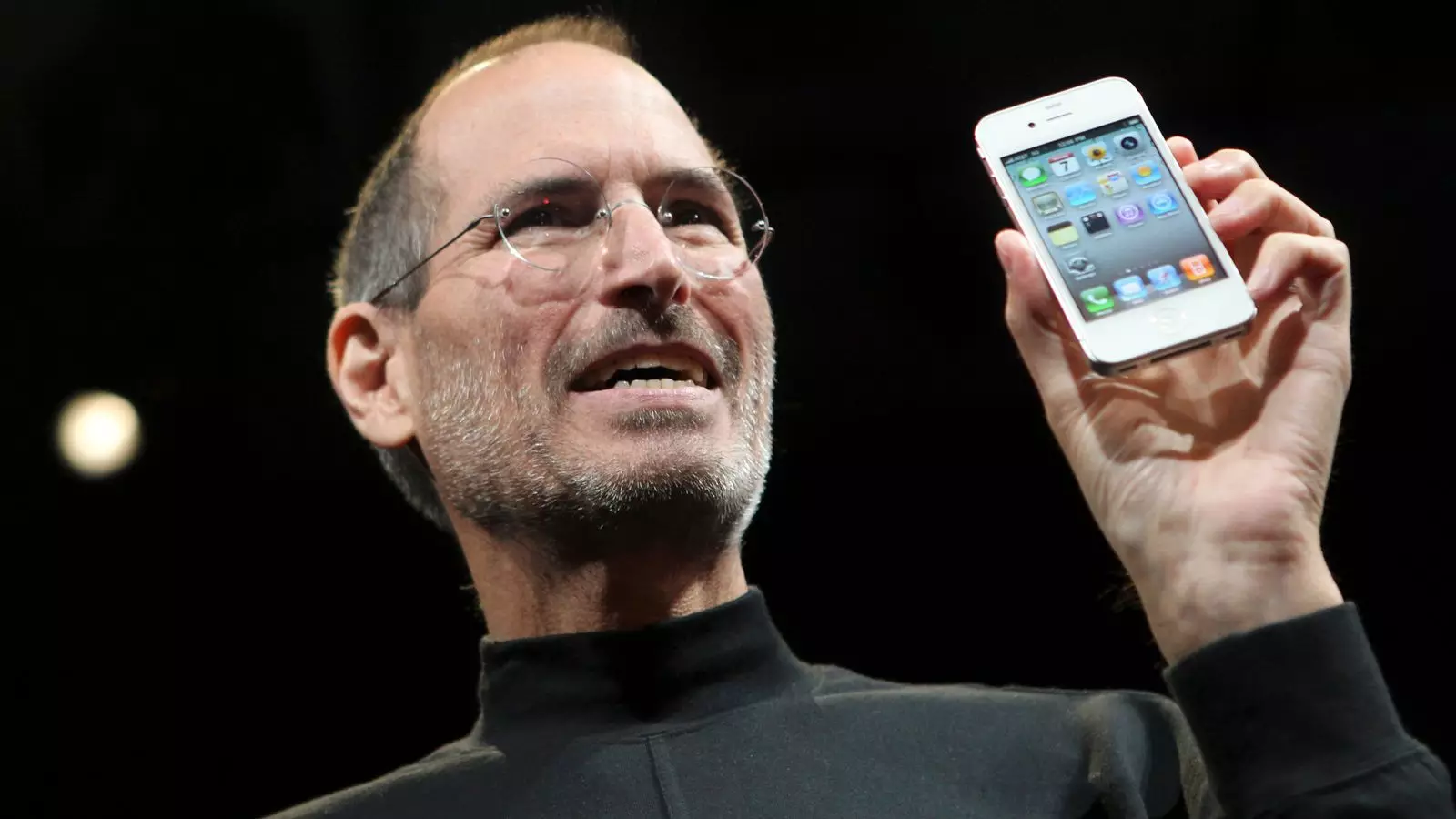In a recent televised interview, Peter Kyle, the Science and Technology Secretary, unnervingly likened Chancellor Rachel Reeves to the legendary Steve Jobs, implying that she holds the key to rejuvenating the UK economy in a profound manner. This analogy is not just a casual reference; it encapsulates the weight of expectation placed upon Reeves as she navigates the treacherous waters of economic recovery. Jobs, who famously revitalized Apple from the brink of bankruptcy, serves as a compelling benchmark against which Reeves’s aspirations may be measured. The confidence expressed by Kyle suggests a belief that Reeves could enact a transformative economic strategy akin to how Jobs redefined technology and innovation.
However, drawing parallels between political leaders and business moguls raises an important question: does the business world, characterized by risk and rapid adaptation, truly apply to the intricate ecosystem of government? This analogy is enticing, but it risks oversimplifying the multifaceted nature of governance. While Jobs molded a product-oriented environment, Reeves must balance a multitude of public interests. The stakes are unfathomably higher, and the consequences of failure have a far-reaching impact on everyday life. This begs the question—will Reeves emerge as the transformative figure that Kyle envisions, or will the complexities of her role overshadow any potential for groundbreaking reform?
Strategic Investment in Innovation: A Double-Edged Sword
The proposed allocation of £86 billion towards science and technology initiatives is indeed a substantial investment in the UK’s future. Allocating £500 million to each region in England for science projects, as Kyle revealed, signals an ambitious commitment to fostering innovation. However, such a financial initiative inherently draws the skeptics out of the woodwork. The government’s previous track record on spending efficiency remains hotly contested, and there are legitimate concerns about whether this money will indeed catalyze the promised breakthroughs in innovative technologies and public health.
Moreover, Kyle’s rhetoric around addressing the economic ‘blackhole’ left by previous administrations evokes deep-rooted distrust among the electorate. Are these funding strategies genuinely aimed at revitalizing the economy, or merely an attempt at political optics? With austerity cuts still fresh in the minds of many, a tangible commitment to fiscal responsibility must accompany any announcements of new funding. The challenge is not merely allocating resources but also effectively managing them to achieve real change. Without stringent oversight and accountability, those funds risk becoming an echo of past failures rather than a launchpad for futuristic excellence.
The Winter Welfare Conundrum
While the spending review gains traction, discussions surrounding critical social welfare programs, particularly winter fuel payments, announce a palpable tension within the Labour party. The contentious decision to limit eligibility for winter fuel payments ignited backlash that could undermine party popularity. A rapid reversal on the initial policy—a move that particularly disadvantaged those in the most need—reveals a policy landscape riddled with uncertainties. The chancellor’s insistence on maintaining fiscal discipline has led to unpopular decisions, showing that the ambition to protect the vulnerable is in direct conflict with economic pragmatism.
The ambiguity of proposed changes is yet another hurdle. Will the new criteria for winter fuel payments enhance accessibility, or will they merely serve as another façade of government intervention? The implementation of any changes is being portrayed as a priority, but without clarity or transparency about the mechanics behind those reforms, public skepticism will persist. This will inevitably put Reeves and her team under pressure, raising additional questions about the effectiveness of their governance.
A Balancing Act: Investment vs. Austerity
The promise of record per pupil spending in education is a welcome respite for many but starkly contrasts with the reality of potential cuts in other departments. This push-pull dynamic—where some areas of public service receive much-needed funding while others face austerity—is emblematic of current liberal governance struggles. While radical investment in innovation and education is promising, it must be tempered with sustainable economic practices that prioritize social welfare and cohesion.
Reeves’s commitment to a ‘fiscally prudent’ approach—a politically palatable stance—is where the real test lies. The question of what sacrifices will be made, and who will bear the brunt of austerity measures looms large. It is essential to scrutinize whether this investment is truly a step forward or merely a reallocation of funds intended to placate dissenters while appeasing party factions. The communities most dependent on public services deserve greater assurance than vague promises of future growth.
The intersection of progressive ideals and rigid financial constraints may very well define the outcome of Rachel Reeves’s tenure as Chancellor. As she appeals to the vision set forth by pioneers like Steve Jobs, her journey will require both audacity and practicality—qualities that are paramount if we are to avert a fallout from the fragile economic fabric of the UK.


Leave a Reply